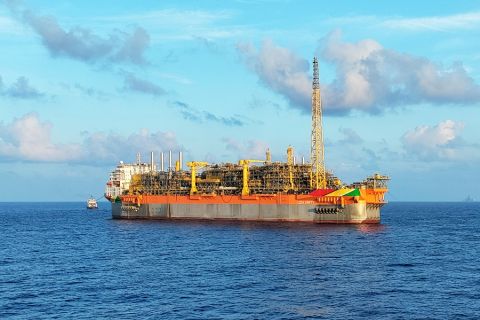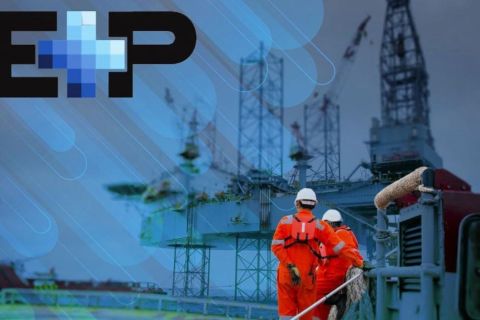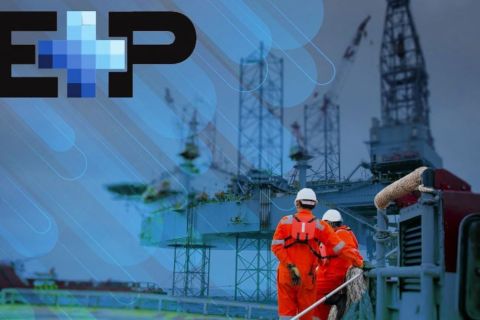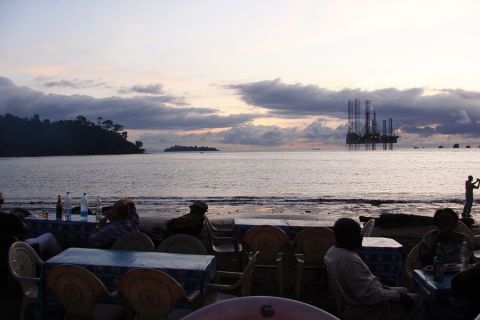Hart Energy Editorial Director Jordan Blum sat down with Mewbourne Oil CEO Ken Waits to talk about a range of topics, including Mewbourne's unique approach during the pandemic, how the company is aiding in global oil and gas supply and the evolving world of energy education in Hart Energy LIVE's latest installment of The OGInterview. Click here to read Mewbourne's full Oil and Gas Investor cover story interview.
Jordan Blum, editorial director, Hart Energy: I'm Jordan Blum, editorial director at Hart Energy, and I'm joined by Ken Waits, president and CEO of Mewbourne Oil, one of the largest energy producers a lot of people haven't heard of.
So Mewbourne took a unique approach, I think, during the pandemic, really, when a lot of companies were scaling back. Y'all really took the alternate approach, really grew. Can I get your thoughts, explanation, just kind of on how things have played out in recent years?
Ken Waits, CEO, Mewbourne Oil: Sure, Jordan. And thanks for having me today. It's a privilege to be with you.
One of the benefits of being around 58 years like we have been is you learn a few lessons along the way. And one of them we've learned is that the best time to be drilling wells is when costs are low. You have to have a strong balance sheet. It takes some courage to have a little bit of a contrarian attitude. I'm mindful of the words of Warren Buffett, the best time to be investing is when there's blood in the streets. And the industry went through some really tough times in 2020, but being privately owned, we tried to take a longer term view and we worked with our service company partners to try to find ways to continue to be active and drilling wells. And again, the low finding cost have been the holy grail for us.
So it was a time when oil prices were very low, but we felt strongly that prices wouldn't stay low. The cure for low oil prices is low oil prices. And it doesn't work all the time, but it's consistent with how we've managed the business over the long term. And we were just a little smaller in the prior down cycles and people probably didn't notice quite as much what we were doing. But we did try to be very aggressive through the pandemic. And I'm really proud of the Mewbourne team and the way everybody responded. The last few years have been just exceptional for us.
JB: Going just beyond the pandemic a little bit with everything geopolitically, with the war in Ukraine, not trying to get yourself to pat yourselves on the back so much, but can you talk about the role Mewbourne has played and kind of growing and helping meet global oil and gas demand?
KW: Well, that's a great question. And we try to, more than anything, just do the right thing from Mewbourne Oil Company. And our drilling activity is dependent on several things, the strength of the company, the opportunities we see, we want to be able to manage our business appropriately and so have the people. But we're proud of the fact that we have grown quite a bit in the last few years and it's been pretty remarkable. When I look at the growth in US production since the down cycle, the industry's production has grown about 600,000 barrels a day. In the same time, ours has grown 125 to 150,000 barrels a day. So we've been a large part of the growth of the US production, not by design, we're patriots at Mewbourne Oil Company. But it's just really a byproduct of some hard work by great people at the company, the commitment of the family to the business, and just some good fortune.
JB: Is it a lot easier to take the contrarian view sometimes when it's private versus public, that is?
KW: Undoubtedly, Jordan. It's easier for us to make some difficult decisions that are perhaps not necessarily great in the short term, but better for us in the long haul than it is some of the publicly owned companies. And we're mindful of that. But that was one of the lessons I learned from Curtis Mewbourne was always try to put yourself in a position where you can do the right thing for the long haul and your ballot sheets strong enough, you'll survive the down cycles and you don't have to do things in the short term that you'd rather not do. And people is one of those things. We've continuously recruited and hired people consistently through up and down cycles. And I think it's really paid dividends for the company. If he were sitting here today, he'd say his success and the company's success was due to the great people of the company. The company is stronger today because of the people we've hired over the years and just the talent, the depth of talent, and the chemistry and culture we have at the company.
JB: Looking ahead for decades to come and continuing to honor his legacy as well, y'all are very involved with education at the University of Oklahoma, for instance. Can you talk about how that's going?
KW: Mr. Mewbourne was a passionate gentleman. He was a great oil man and a great man. And he was passionate about education. He really viewed it as kind of the cornerstone for people improving their quality of their lives and was a pioneer in that area in terms of supporting and energy education, primarily at the University of Oklahoma but we've been very supportive of other energy related programs at Texas, Texas Tech, A&M and others. Just believe that, I think, it's a great industry because they're great people. And Mewbourne Oil Company has been very successful because we have great people.
One of my real concerns is, I think we've all seen and been reminded that oil and gas is going to be here for decades to come, that the energy transition is going to take time. And if I borrow a phrase some of my friends have used, I think it's an energy addition, not a transition. And we're going to need young people to come into this industry and help us continue to meet the demands that the world has for reliable, affordable energy. And I'm concerned that we don't have enough talented young people coming in to traditional energy programs in the business, whether it's petroleum engineering or geology or energy management, and I understand it, I mean these are unusual times we're living in. But Mr. Mewbourne, I think his support originally was to help people financially and offer them some hope that there would be an opportunity, and we continue to do that today. And I'm proud to say we'll have 35 interns this summer. Believe that there's a future for these young people and that Mewbourne Oil Company. I think one of our strengths is we're pretty good at developing young people and help people reach their full potential and find what they're passionate about. And frankly, I wish I was 25, Jordan. I think there's more opportunity in the business than young people can imagine.
JB: Can you touch on just how those academic programs are evolving a bit in that energy addition way, as you say?
KW: Right. That's a great question because I think the industry's evolving. We always have, and I think we'll continue to evolve and we need to, and energy education along with it. Whether it's traditional petroleum land management becoming energy management. One of the programs I'm excited about is at the University of Oklahoma we're starting a new program called GeoEnergy. We'll continue to offer the traditional petroleum engineering program, but we recognize that we are in a long-term energy transition. And renewables will be needed, geothermal will be needed, carbon capture and carbon sequestration, hydrogen. And so we're starting a new degree program that will be an engineering program with a lot of the foundation of petroleum engineering, but it also offer some classes and education in those areas that are evolving today. And so I think it'll be a great education, a great program for young technical people that are interested in that kind of program and is an example of how education is changing along with the business. So I'm really excited about that program.
JB: Thank you so much for joining us here for this OGI interview. Really appreciate it. For more information, please read and watch online at hartenergy.com.
Recommended Reading
Exxon Mobil Green-lights $12.7B Whiptail Project Offshore Guyana
2024-04-12 - Exxon Mobil’s sixth development in the Stabroek Block will add 250,000 bbl/d capacity when it starts production in 2027.
E&P Highlights: April 1, 2024
2024-04-01 - Here’s a roundup of the latest E&P headlines, including new contract awards.
Exxon Ups Mammoth Offshore Guyana Production by Another 100,000 bbl/d
2024-04-15 - Exxon Mobil, which took a final investment decision on its Whiptail development on April 12, now estimates its six offshore Guyana projects will average gross production of 1.3 MMbbl/d by 2027.
E&P Highlights: Jan. 29, 2024
2024-01-29 - Here’s a roundup of the latest E&P headlines, including activity at the Ichthys Field offshore Australia and new contract awards.
Deepwater Roundup 2024: Offshore Africa
2024-04-02 - Offshore Africa, new projects are progressing, with a number of high-reserve offshore developments being planned in countries not typically known for deepwater activity, such as Phase 2 of the Baleine project on the Ivory Coast.





